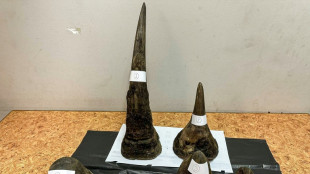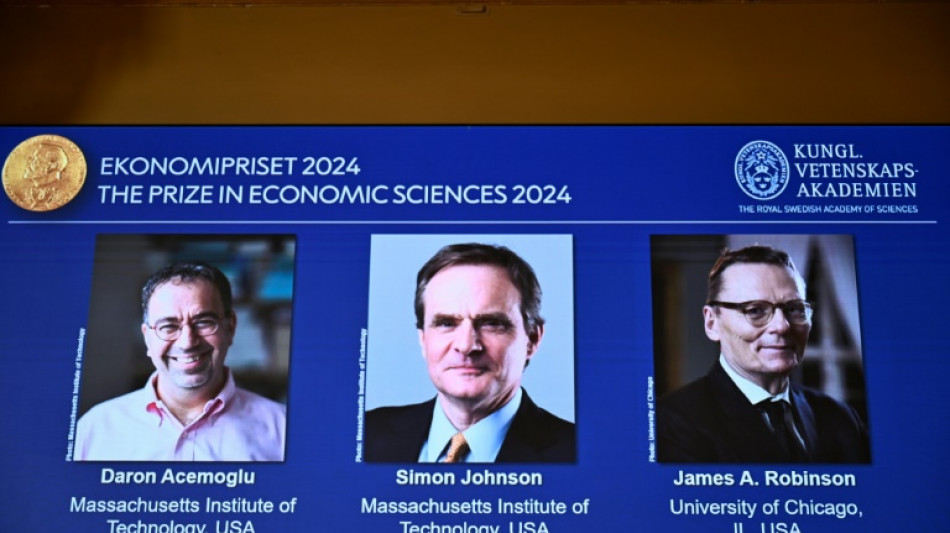
-
 Britain's Harris Dickinson on John Lennon, directing and news overload
Britain's Harris Dickinson on John Lennon, directing and news overload
-
9 killed in Canada mass shooting that targeted school, residence
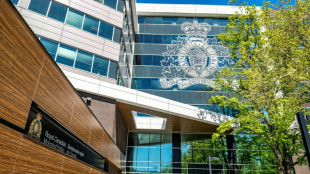
-
 Wembanyama scores 40 as Spurs rout Lakers, Pacers stun Knicks
Wembanyama scores 40 as Spurs rout Lakers, Pacers stun Knicks
-
UK's crumbling canals threatened with collapse

-
 Hong Kong convicts father of wanted activist over handling of funds
Hong Kong convicts father of wanted activist over handling of funds
-
Australia charges two Chinese nationals with foreign interference
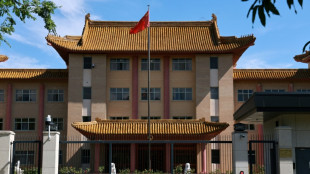
-
 'Overloading' may have led to deadly Philippine ferry sinking
'Overloading' may have led to deadly Philippine ferry sinking
-
Bangladesh to vote on democratic reform charter
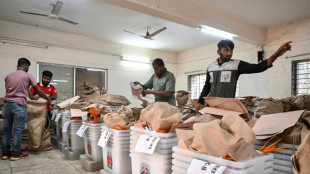
-
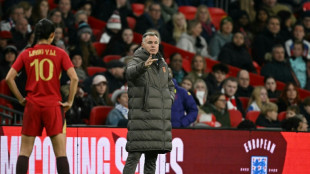 China coach warns of 'gap' ahead of Women's Asian Cup title defence
China coach warns of 'gap' ahead of Women's Asian Cup title defence
-
Glitzy Oscar nominees luncheon back one year after LA fires
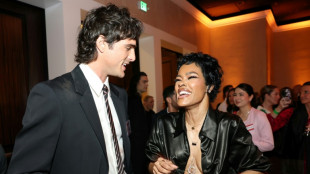
-
 Pacers outlast Knicks in overtime
Pacers outlast Knicks in overtime
-
9 killed in Canada mass shooting that targeted school, residence: police
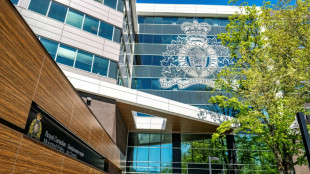
-
 De Zerbi leaves Marseille 'by mutual agreement'
De Zerbi leaves Marseille 'by mutual agreement'
-
Netanyahu to push Trump on Iran missiles in White House talks
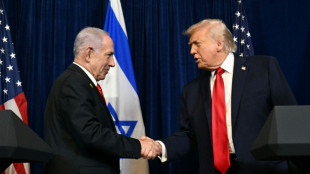
-
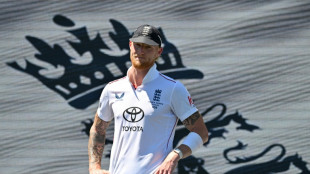 England captain Stokes has surgery after being hit in face by ball
England captain Stokes has surgery after being hit in face by ball
-
Rennie, Joseph lead running to become next All Blacks coach
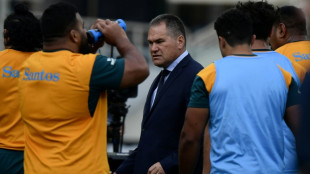
-
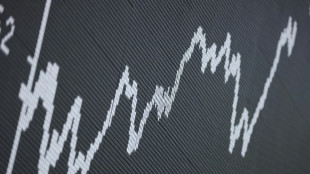 Asian stock markets mixed as traders weigh US data, await jobs
Asian stock markets mixed as traders weigh US data, await jobs
-
Australian Olympic snowboarder airlifted to hospital with broken neck
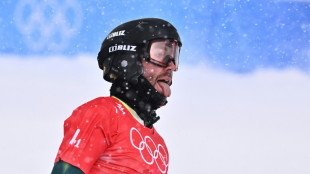
-
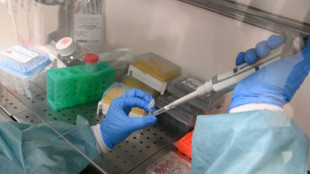 Moderna says US refusing to review mRNA-based flu shot
Moderna says US refusing to review mRNA-based flu shot
-
'Artists of steel': Japanese swords forge new fanbase

-
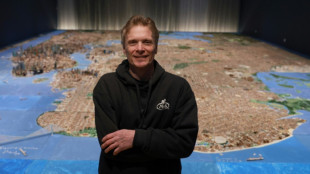 New York model, carved in a basement, goes on display
New York model, carved in a basement, goes on display
-
Noisy humans harm birds and affect breeding success: study

-
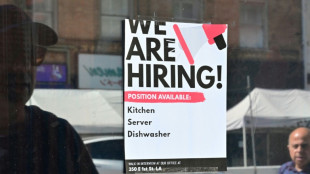 More American women holding multiple jobs as high costs sting
More American women holding multiple jobs as high costs sting
-
Charcoal or solar panels? A tale of two Cubas
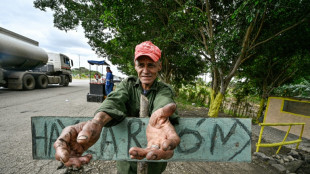
-
 Tocvan Announces Restart Of Exploration Drilling At The Gran Pilar Project South Block
Tocvan Announces Restart Of Exploration Drilling At The Gran Pilar Project South Block
-
Corporate Treasury & Digital Infrastructure Note: The Active Management Divergence

-
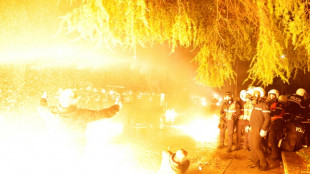 Several wounded in clashes at Albania opposition rally
Several wounded in clashes at Albania opposition rally
-
Chelsea's draw with Leeds 'bitter pill' for Rosenior

-
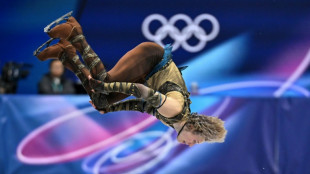 'On autopilot': US skate star Malinin nears more Olympic gold
'On autopilot': US skate star Malinin nears more Olympic gold
-
Carrick frustrated by Man Utd's lack of sharpness in West Ham draw
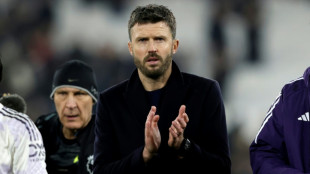
-
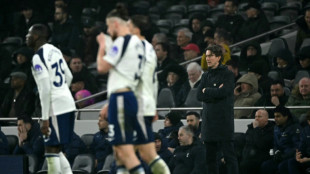 Frank confident of keeping Spurs job despite Newcastle defeat
Frank confident of keeping Spurs job despite Newcastle defeat
-
James's All-NBA streak ends as Lakers rule superstar out of Spurs clash
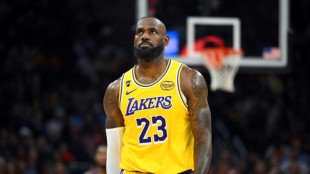
-
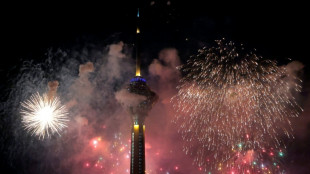 Anti-Khamenei slogans in Tehran on eve of revolution anniversary: social media footage
Anti-Khamenei slogans in Tehran on eve of revolution anniversary: social media footage
-
Colombian senator kidnapped, president targeted in election run-up
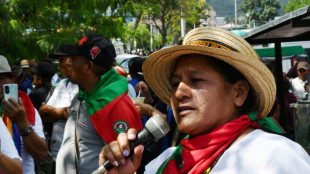
-
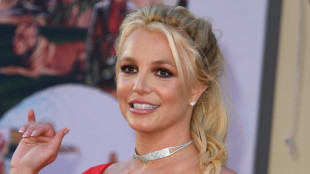 Britney Spears sells rights to her music catalog: US media
Britney Spears sells rights to her music catalog: US media
-
West Ham end Man Utd's winning run, Spurs sink to 16th
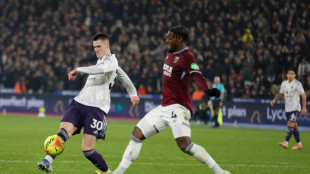
-
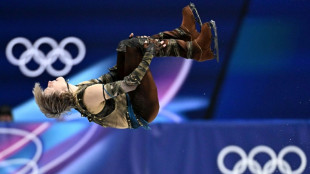 US skate star Malinin leads after short programme in Olympics
US skate star Malinin leads after short programme in Olympics
-
Man Utd's Sesko strikes late to rescue West Ham draw
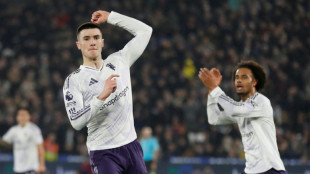
-
 Shiffrin flops at Winter Olympics as helmet row grows
Shiffrin flops at Winter Olympics as helmet row grows
-
Celtics' Tatum practices with G League team but injury return uncertain

-
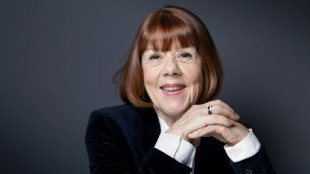 Gisele Pelicot publishes memoirs after rape trial ordeal
Gisele Pelicot publishes memoirs after rape trial ordeal
-
Newcastle beat sorry Spurs to leave Frank on the brink
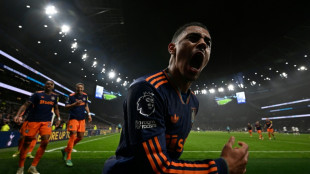
-
 'Outrage' as LGBTQ Pride flag removed from Stonewall monument
'Outrage' as LGBTQ Pride flag removed from Stonewall monument
-
Chappell Roan leaves agency headed by embattled 2028 Olympic chief

-
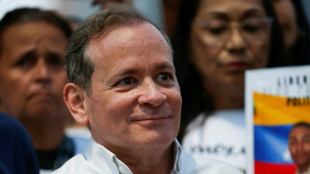 Venezuelan authorities move Machado ally to house arrest
Venezuelan authorities move Machado ally to house arrest
-
YouTube rejects addiction claims in landmark social media trial

-
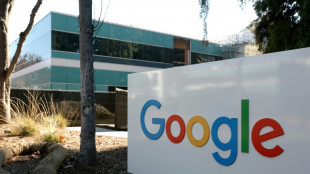 Google turns to century-long debt to build AI
Google turns to century-long debt to build AI
-
'I felt guided by them': US skater Naumov remembers parents at Olympics
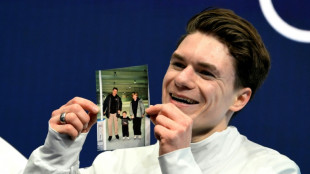
-
 Till death do us bark: Brazilian state lets pets be buried with owners
Till death do us bark: Brazilian state lets pets be buried with owners
-
'Confident' Pakistan ready for India blockbuster after USA win
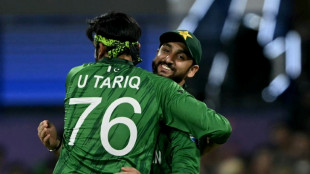

Trio wins economics Nobel for work on wealth inequality
The Nobel prize in economics was awarded on Monday to Turkish-American Daron Acemoglu and British-Americans Simon Johnson and James Robinson for research into wealth inequality between nations.
By examining the various political and economic systems introduced by European colonisers, the three have demonstrated a relationship between societal institutions and prosperity, the jury said.
"Reducing the vast differences in income between countries is one of our time's greatest challenges," Jakob Svensson, chair of the Committee for the Prize in Economic Sciences, said in a statement.
"The laureates have demonstrated the importance of societal institutions for achieving this," Svensson added.
Acemoglu, 57, is a professor at the Massachusetts Institute of Technology (MIT), as is Johnson, 61.
Robinson, 64, is a professor at the University of Chicago.
The jury highlighted the laureates' work in illuminating how societal institutions play a role in explaining why some countries prosper while others do not.
In a statement explaining the prize, the jury noted the example of the city of Nogales, which is divided by the US-Mexican border, where residents on the US side of the city tend to be better off.
"The decisive difference is thus not geography or culture, but institutions," the Royal Swedish Academy of Sciences said.
The US economic system provides residents north of the border greater opportunities to choose their education and profession, and they are part of the US political system, which gives them broad political rights.
By contrast, south of the border, residents live under other economic conditions, and the political system limits their potential to influence legislation.
- Democracy -
In addition, the jury noted that the laureates' research also helped explain why some countries become trapped in a situation of "low economic growth."
"The introduction of inclusive institutions would create long-term benefits for everyone, but extractive institutions provide short-term gains for the people in power," the jury said.
It said that "institutions that were created to exploit the masses are bad for long-run growth."
Conversely, it noted that "ones that establish fundamental economic freedoms and the rule of law are good for it."
Acemoglu, who was "delighted" to receive the award, told reporters that the "work that we had done favours democracy."
"Countries that democratise, starting from a non-democratic regime, do ultimately grow about eight, nine years faster than non-democratic regimes. And it's a substantial gain," Acemoglu said via telephone from Athens as the award was announced in Stockholm.
He acknowledged nonetheless that "democracy is not a panacea" and "introducing democracy is very hard."
The economics prize is the only Nobel not among the original five created in the will of Swedish scientist Alfred Nobel, who died in 1896.
It was instead created through a donation from the Swedish central bank in 1968, leading detractors to dub it "a false Nobel".
However, like for the other Nobel science prizes, the Royal Swedish Academy of Sciences decides the winner and follows the same selection process.
The economics prize wraps up this year's Nobel season, which honoured achievements in artificial intelligence for the physics and chemistry prizes, while the Peace Prize went to Japanese group Nihon Hidankyo, committed to fighting nuclear weapons.
South Korea's Han Kan won the literature prize -- the only woman laureate this year -- while the medicine prize lauded discoveries in understanding gene regulation.
The Nobel Prizes consist of a diploma, a gold medal and a $1 million reward.
They will be presented at ceremonies in Stockholm and Oslo on December 10, the anniversary of the 1896 death of scientist and prize creator Alfred Nobel.
P.Mathewson--AMWN
